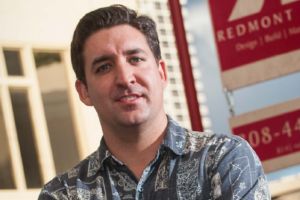As president and chief executive officer of the state’s largest private hospital, Art Ushijima has a critical role in the midst of one of the industry’s biggest transformational periods to date.
On the state of the industry:
Technology has increased the cost of health care, but it has dramatically improved the delivery of care. Financial pressures have intensified as the industry moves from a fee-for-service payment system to a fixed-payment system, and eventually to a capitated system based on covered lives.
On consumer-driven health care:
Most of us still want that “magic pill.” We expect the doctor and the health care system to fix the outcomes of our bad habits and lifestyles. We need to work with students at the elementary level to teach them about making healthy choices, before bad habits set in.
On industry consolidation:
The health care industry has to consolidate because of the need for scale and efficiency to support essential capital investments in facilities, new technology, equipment and IT.
On outcome-based payment:
The value-based or outcome-based payment models appear logical on the surface, but they rely on the implicit assumption that all patients have the same makeup. This may be applicable in the less acute situations, but when patients have comorbid conditions that increase the complexity of care and outcomes, today’s payment systems largely fail to recognize the associated costs. The industry is working to remove inefficiency, but the nature of the work still drives costs. The most significant way to reduce costs is for employers and employees to reduce the demand for services. Outcome-based payments don’t reduce demand.




